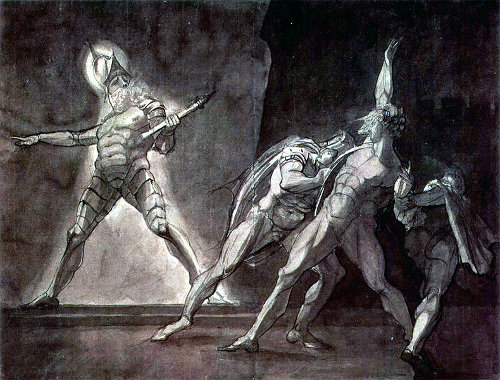
A correspondent at Princeton College sent this conundrum to Sam Loyd:
“Supposing that a bird weighing one ounce flies into a box with only one small opening, and without resting continues to fly round and round in the box, would it increase or lessen the weight of the box?”
Loyd said he was open to argument, but “the preponderance of opinion is so overwhelmingly in favor of the weight of the bird being added to that of the box, that it would be difficult to present reasonable argument for the other side, despite of the popular belief that such would be the case. … The bird is heavier than the air and supports itself by striking down upon the air and the power of such strokes would undoubtedly show on the dial the difference in weight between the bird and its displacement of air.”
A related problem from Clark Kinnaird’s Encyclopedia of Puzzles and Pastimes (1946):
“A vagrant who stole three melons weighing three pounds each, came to a bridge which was just strong enough to hold him and six pounds. Without throwing any of the melons across the bridge, how did the vagrant cross the bridge with the melons, none of which touched the bridge?”
Kinnaird’s answer: He juggled them.


